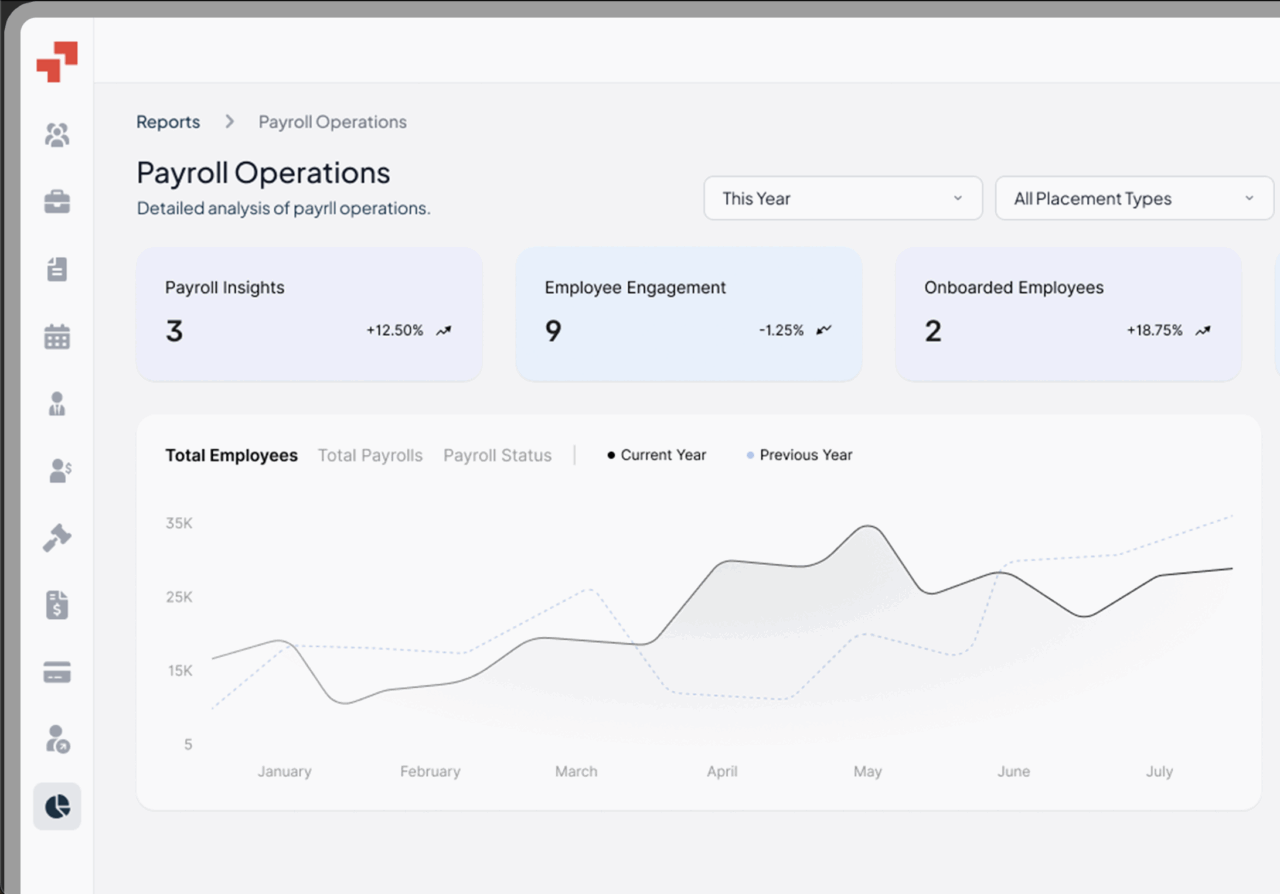Highlights of 2025 german labor law changes
- Increase in Statutory Minimum Wage in Germany in 2025
- Digitalization of Employment Contracts in 2025
- Increase in Social Insurance Contribution in Germany 2025
- Digitalization of Employment Documents in Germany in 2025
- Free AI Training for Employees During Work Hours in 2025
- Electronic Parental Leave Applications process in Germany
- 2025 Income Tax and Social Contribution Changes
- Promoting Employee Well-Being Through Compliance
- FAQ’s on Latest Deutsch Labor Law Updates
Big changes are coming with Germany’s 2025 labor laws, and the risks of non-compliance go beyond just financial penalties. The impact of these changes can reverberate throughout your business, affecting everything from daily operations to employee morale, and even your company’s public image.
Whether you’re a startup or an established enterprise, staying compliant is non-negotiable. But don’t worry, In this blog, we’ll guide you through the significant changes you need to be aware of, outline what’s at stake for your business. Stay ahead of the curve, minimize risks, and make compliance effortless with PamGro.
1. Increase in Statutory Minimum Wage in Germany in 2025
Update: Starting in January 2025, Germany’s minimum wage has been raised to €12.82 per hour, a significant increase from previous rates, according to German wage regulations 2025.
Starting January 2025, Germany’s minimum wage jumped to €12.82 per hour, and it’s definitely making waves. For industries like retail, construction, and hospitality, this means a noticeable shift in payroll costs.
As an employer, staying ahead of the game is crucial, especially with the upcoming changes to Germany’s labor laws. Now’s the time to update your systems and ensure your employment contracts reflect the new rates and regulations. Don’t wait for a costly oversight – take a moment to review your pay structures and ensure everything aligns with the 2025 standards. It’s a small step now that can save you big in the long run.
2. Digitalization of Employment Contracts in 2025
Update: According to The Fourth Bureaucracy Relief Act 2025 open-ended contracts can be signed electronically, cutting down on paperwork and speeding up the process.
But hold on – don’t throw out your pens just yet. Fixed-term contracts still need those classic wet ink signatures to keep them legally valid, thanks to Germany’s current labor laws.
It’s a step toward digitalization, but employers need to be careful with compliance, especially when handling different types of contracts.
This is where PamGro steps in. With the new German e-signature laws in place, our approach already aligns with these regulations, further solidifying our commitment to forward-thinking solutions and seamless cross-border operations. Say goodbye to paperwork piles and hello to a smoother, more efficient hiring experience – without the legal headaches!
Salary Calculator - Germany
3. Increase in Social Insurance Contribution in Germany 2025
Update: As of January 1, 2025, the earnings threshold for mini-jobs in Germany has increased to €556 per month, totaling €6,672 annually.
Mini-jobs* in Germany can be a puzzle, but don’t worry we have the pieces. Employers have to pay several social insurance contributions: 9.3% for pension insurance, 1.3% for unemployment insurance, 8.55% for health insurance and 1.8% for care insurance.
Employees are generally not contributing into health, unemployment and care insurance, but into pension insurance – unless they opt out.
And mini-job earnings? Tax-free – unless the employee has other income. With these changes businesses need to adjust their payroll systems to stay compliant with the new contribution rates and thresholds.
That’s where PamGro comes in. Our payroll experts are always one step ahead, updating your systems quickly so you stay up to date with the latest changes. Leave the details to us and you can relax knowing your payroll is in good hands.
*A mini job in Germany is a part-time job with a low wage and limited income. Mini jobs are popular with students, retirees, and others who want extra income
4. Digitalization of Employment Documents in Germany in 2025
Update: Mandatory documents, such as records of youth employment and working hours, can now be submitted digitally through Digitalization of employment documents in Germany.
Say goodbye to the old days of managing piles of paperwork for mandatory documents like youth employment records and working hours.
With the digitalization of employment documents in Germany, these records can now be submitted online, simplifying the process for both employers and employees. This modernization aims to cut down on administrative work, improve compliance, and make everything more accessible.
The real benefit? Less paperwork means better, more efficient record-keeping. For businesses looking to stay ahead, the next step is easy: use centralized HR software to handle all documentation digitally.
This will save time, reduce errors, and keep compliance issues at bay. PamGro’s employment solutions ensure your digital documentation is always in line with the latest requirements. Let us handle the details so you can focus on growing your business!
5. Free AI Training for Employees During Work Hours in 2025
Update: Starting in February 2025, AI training requirements for employees in Germany during work hours, and the training must be free of charge.
The new initiative to offer free AI-related training aims to give workers the chance to develop essential skills without financial strain.
This move will not only enhance workforce adaptability and promote digital competence but also help businesses keep up with the rapid pace of technoloical change.
For companies using AI-heavy technologies, this means allocating time and resources for training programs. To stay fully compliant, businesses should set up training programs and keep records of employee participation.
That’s where PamGro comes in. Our Employee of Record (EOR) services ensure your company meets the latest EU AI regulations, covering everything from documentation to compliance management. If additional training is required, we can facilitate that as part of our tailored support, so you can stay focused on what matters most—driving your business forward.
6. Electronic Parental Leave Applications process in Germany
Update: Starting in May 2025, Electronic parental leave submissions in Germany will initiate, and employers must acknowledge receipt in text form.
Gone are the days of sorting through stacks of paper for parental leave requests. With the new digital process, employers are now required to acknowledge receipt of these submissions in text form, bringing more transparency and ensuring compliance.
This is a game-changer, designed to simplify administrative tasks, boost efficiency, and make everything more accessible for both employees and employers. But here’s the thing: businesses need to update their systems to handle these electronic requests smoothly and ensure timely processing.
P.S: We offer smart solutions to help companies manage and track electronic parental leave applications, keeping everything compliant without the headache. Let us take care of the paperwork so you can stay focused on growing your business!
7. 2025 Income Tax and Social Contribution Changes
Update: As 2025 rolls in, there are some important updates to Germany’s tax and social insurance system.
Income tax rates now range from 14% to 45%, depending on the salary bracket, and for those earning over €10,239 per month, a solidarity surcharge of 5.5% kicks in.
Additionally, care insurance contributions have been adjusted, with employers contributing 1.8% and social security contributions by 2.4%.
With all these updates, it’s crucial to ensure your payroll system is up to date as per Payroll Updates Germany 2025.
With the ever-evolving tax and compliance landscape in Germany, our team of payroll experts is here to handle complex tax calculations, deductions, and contributions. Additionally, our dedicated Account Manager will guide you through labor laws and keep you informed, helping you avoid the nightmare of non-compliance penalties and ensuring your business stays stress-free and compliant.
Updated Tax Rates – 2025
| Income Range (Singles) | Income Range (Married) | Tax Rate |
| €0 – €12,096 | €0 – €24,192 | 0% |
| €12,097 – €68,480 | €24,194 – €136,960 | 14% – 42% |
| €68,481 – €277,825 | €136,962 – €555,650 | 42% |
| Over €277,825 | Over €555,650 | 45% |
Notes:
The tax rate in the 14% to 42% range is progressive and depends on income level.
8. Promoting Employee Well-Being Through Compliance
Update: Compliance isn’t just about ticking boxes or avoiding fines – it’s about building a workplace where employees feel respected, valued, and secure.
When businesses stay on top of evolving labor laws in Germany, they’re not just following the rules; they’re building trust, boosting morale, and creating an environment that employees want to be a part of. By meeting all the legal requirements, employers can ensure smooth operations and a positive company culture.
Our team of experts, including dedicated Account Managers for the clients and dedicated relationship managers for contractors provides tailored support and guidance to help you navigate Germany’s complex compliance landscape. From regular updates on changing regulations to offering clarity on your specific needs, we ensure you stay compliant—without the stress. Let us handle the complexities of employment laws so you can focus on empowering your team and growing your business.
If you have any questions or need further assistance, our team is always ready to help. Reach out to us at sales@pamgro.com to connect with a RM who can support you every step of the way.
Related Newsletter Insight
Stay updated with the latest global hiring and compliance changes.
Stay Ahead of the Changes—PamGro Is Your Key to Effortless Compliance
Picture this: A world where compliance with Germany’s ever-changing labor laws is effortless, payroll is seamless, and you can focus on growing your business.
With PamGro, this isn’t just a dream—it’s your new reality. From the latest minimum wage updates to digital parental leave requests, we’ve got it all covered. Our experts ensure you stay compliant without breaking a sweat. By staying ahead of the curve, you build trust, boost morale, and create a winning environment.
Ready to take the next step? Let’s make compliance the easiest part of your business with PamGro.
Payroll Solutions Unrivalled since 15 Years

Frequently Asked Questions (FAQs) on Latest German Labor Law Updates
The new minimum wage is €12.82 per hour, effective January 1, 2025. Employers must ensure all employees meet this wage.
Ans: In 2025, the rates are: 18.6% for pensions, 2.6% for unemployment, 3.6% for long-term care, and 14.6% (plus an additional contribution) for health insurance.
Ans: A mini-job, known in German as “geringfügige Beschäftigung,” is a form of marginal employment in Germany that allows individuals to earn a limited income while enjoying certain benefits.
Ans: The mini-job earnings threshold has increased to €556 per month, allowing more flexible employment terms.
Ans: Employers can now accept parental leave requests in digital formats (e.g., email) starting May 2025.
Ans: Employers can provide employment terms and references digitally, but must still offer paper copies if requested.
Ans: Employers with 20+ employees must ensure 5% of the workforce consists of individuals with severe disabilities.
Ans: The maximum period for short-time working benefits has been extended to 24 months. Employers must adjust their plans accordingly.
Hire the Best Talent, Anywhere


Mukul Dixit is a Growth Marketing Associate with 7+ years of experience creating impactful content in Innovative Tech, SaaS, and HR. A curious explorer at heart, he’s always on the lookout for new cultures to experience, fresh music to vibe, and innovative business ideas to dive. Passionate about entrepreneurship and digital marketing, Mukul brings a creative edge to everything he does.







